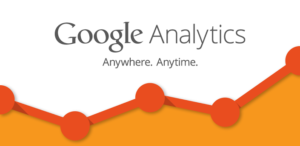Good news everyone! Using Google Analytics in Germany is no longer a no-no, but a definite and enthusiastic yes-yes. Provided that you are following a list of guidelines specifically designed to anger webmasters and please officials and regulators. We are talking about Germany here, after all. Hang on, I hear you say, hasn’t Google Analytics always been ok to use? I’ve been doing this for ages… Well, let’s just rewind a little and have a look at the situation before taking a closer look at this set of guidelines.
The Game
The most populous country in Europe continues to be economically strong and presents a crucial market for internet entrepreneurs. However, Google, Facebook & Co. are having a tough time in Germany (have a look at the recent debates on Google as well as facebook pseudonyms and facial recognition), as the country’s data protection regulations are significantly tighter than in other countries, preventing any over-enthusiastic use and transmission of data to third party services.
One of the most heatedly discussed and problematic issues is the use of Google Analytics, as the tool enables Google to create comprehensive personal profiles of users’ browsing habits. Any processing of personal data (which includes passing on the users’ complete IP addresses to third parties such as Google) may only be done after users have agreed to this.
However, since Google Analytics behaves anonymously when someone visits a website, the user is never informed about their sharing of personal data with Google. Additionally, according to German law the user has to be able to visit the website even if they don’t agree to any collection of his personal data, which adds further technical complications. Hence, German regulators prohibited webmasters from integrating their sites into Analytics at all.

In 2010, Google released an opt-out browser add-on for all major web browsers, which deactivates any transmission of data to Google Analytics. Following this, Germany decided to review the case and came to a conclusion in September of 2011: The use of Google Analytics is not prohibited per se anymore, but website operators need to follow a set of guidelines, which are aimed at protecting the visitor’s data and privacy. Anyone wishing to use the service should therefore make sure to implement the requirements in order to stay on the legal side of things.
The Rules
What are these guidelines we’re talking about then? Below, we have put together a webmaster’s checklist for you:
- Update the website’s privacy policy to include the following items:
- Inform users that you are using Google Analytics on the website, and that their data will be collected and processed with Google Analytics.
- Instruct users on the possibility of disabling Google Analytics if they do not agree to this, and provide a link to the browser add-on via which they can opt-out.
- Delete any old data Google Analytics may have collected. Unfortunately, this can only be achieved by closing existing Google Analytics profiles, and then creating new ones.
- Implement the IP mask function, which will prevent Google Analytics from saving and processing the users’ full IP addresses. You (or your trusted developer) can do this easily by adjusting the privacy settings through the Google Analytics Program Code. Simply embed the “_anonymizeIp()” function that can be found here.
- You will have to enter into a written agreement with Google, allowing them to collect and process data from your website. Download and print the German contract, don’t forget to sign it and post it off to Google. Make sure to enclose a pre-stamped envelope as they will send a signed copy back to you.
There you go, piece of cake! Follow these steps and you will stay out of trouble with German authorities. We will keep you updated on any changes to these legal requirements, so stay tuned. Auf Wiedersehen!

